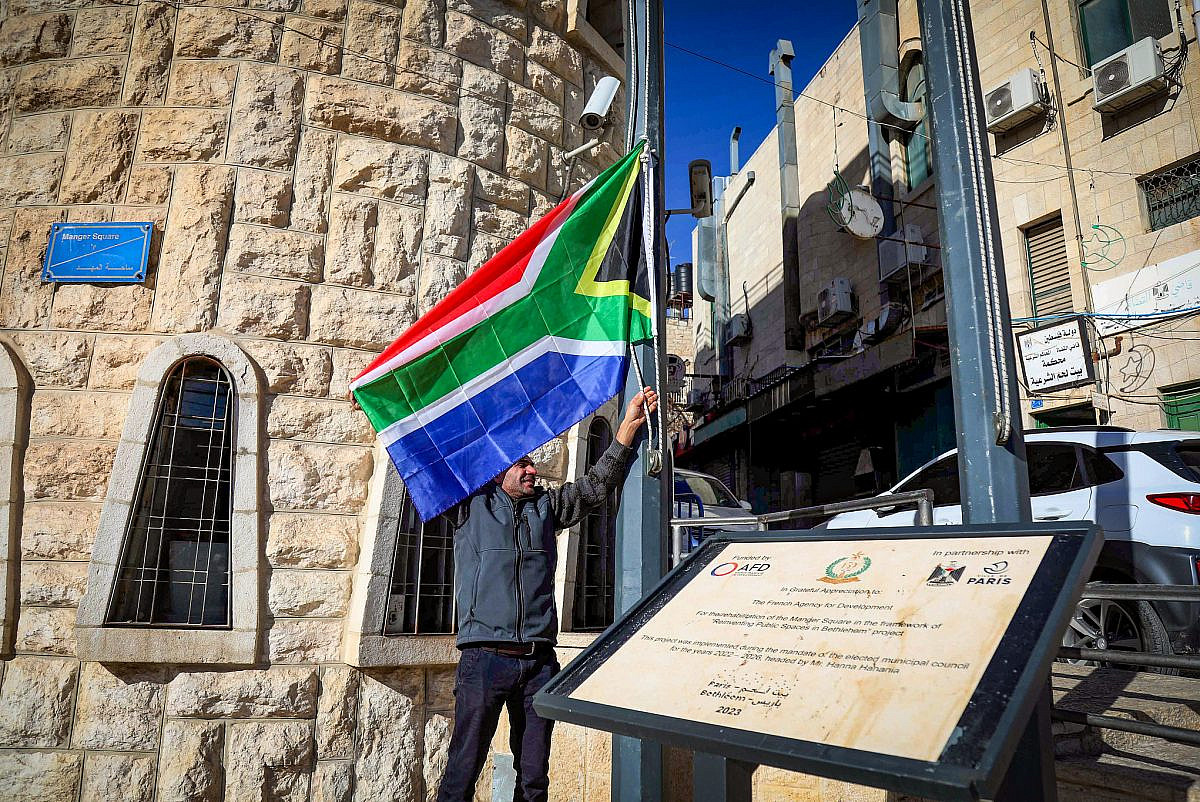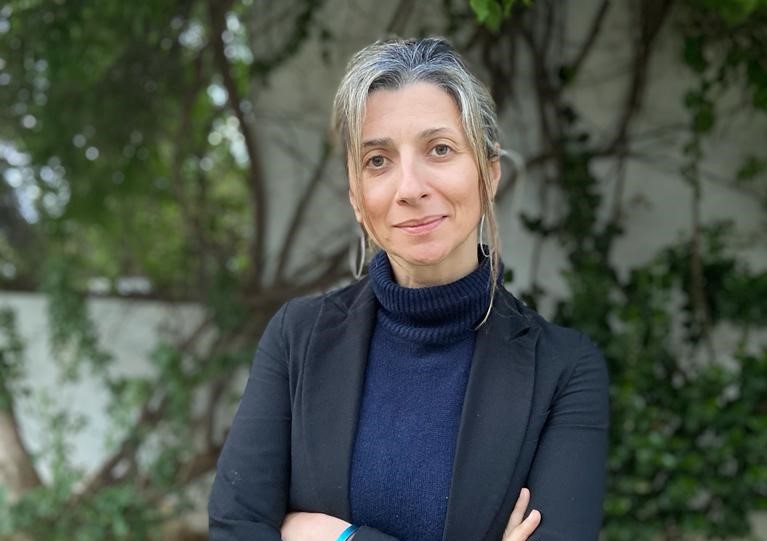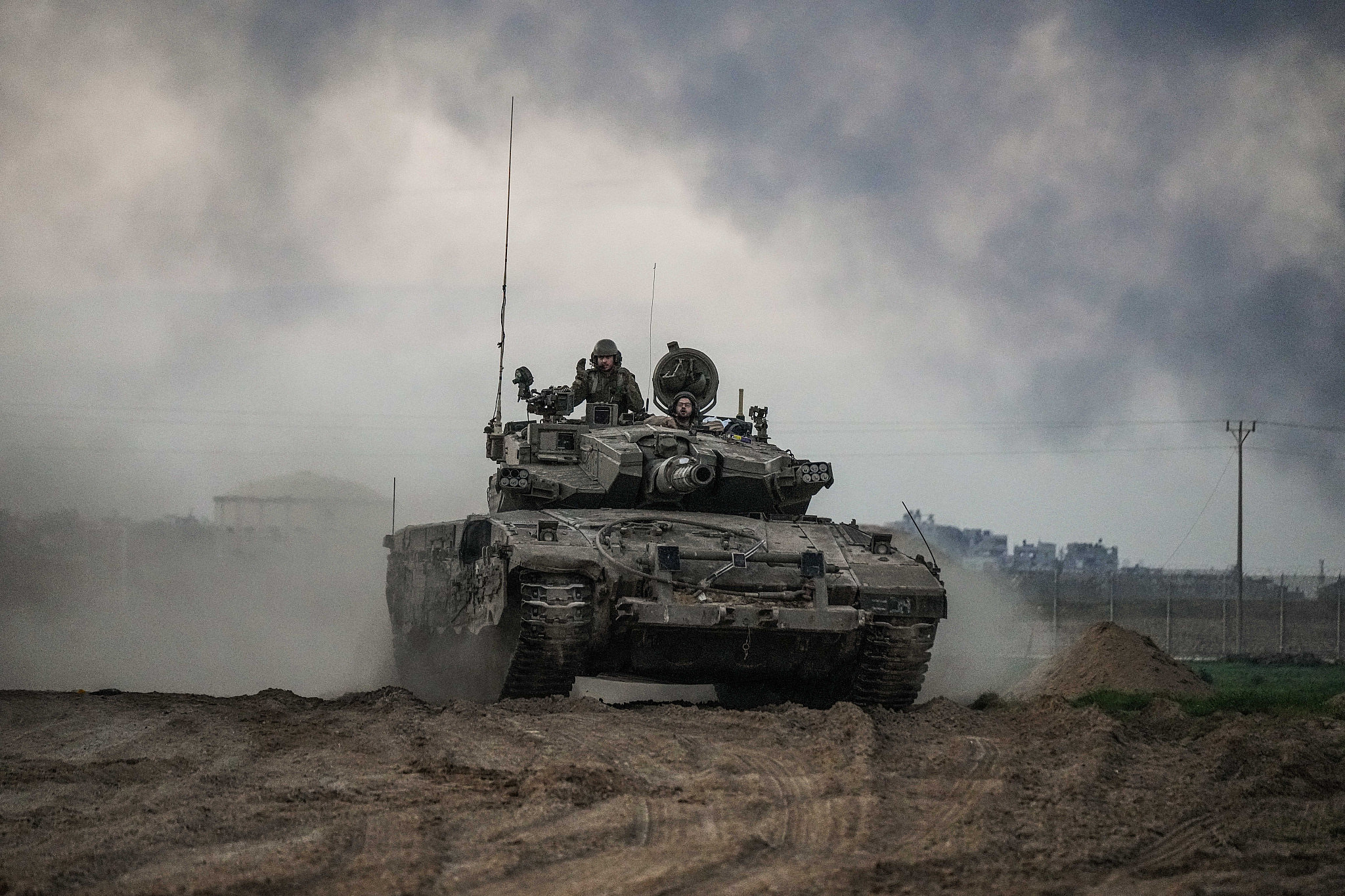Since taking on the role of the UN Special Rapporteur on the occupied Palestinian territories in 2022, Francesca Albanese has been vigorously reporting on violations of human rights and vocally advocating for the protection of Palestinians under international law. Two weeks ago, the stakes of her mandate were raised even higher, with South Africa bringing a landmark case to the International Court of Justice (ICJ) accusing Israel of committing genocide amid its ongoing war on the Gaza Strip.
Representatives of both states laid out their legal arguments in The Hague on Jan. 11 and 12, in hearings that were watched worldwide with great anticipation. Although it is likely that the Court will take several years to reach a conclusion on the broader question of whether Israel has violated the Genocide Convention, it is expected to rule on South Africa’s requested provisional measures, including the matter of a ceasefire, within a matter of weeks.
Albanese — an international lawyer and scholar, and the first woman to be appointed to her current UN post — has naturally been following the ICJ proceedings very closely. In the aftermath of the hearings, she sat down with +972 to make sense of this pivotal moment in the history of Israel-Palestine, the ripples of which are being felt around the world — and particularly in the Global South.
She discussed her initial reactions to the hearings, Europe’s unwillingness to reflect on its colonial and genocidal past, and the significance of an international power struggle playing out in the legal arena. The conversation has been edited for length and clarity.
What exactly is the mandate of the ICJ as opposed to the ICC, and how does the Genocide Convention come into play?
The International Criminal Court (ICC) is a tribunal designed to hold to account individual perpetrators of the most heinous international crimes — namely war crimes, crimes against humanity, genocide, and crimes of aggression. It is not a body of the United Nations, but was instituted in 1998 by the Rome Statute.
The ICJ, on the other hand, is one of the six official organs of the UN, serving as its primary judicial organ. Its role is to resolve legal disputes that arise between states, as well as to provide advisory opinions on legal matters referred to it by entities such as the UN General Assembly or the UN Security Council. While its advisory opinions are non-binding, its decisions regarding legal disputes [such as the current one over Gaza] are binding.
The South African application was filed within the framework of the 1948 Genocide Convention, over which the ICJ has jurisdiction. South Africa and Israel have both signed and ratified the Convention, and Pretoria is invoking its rights and obligations under it to forestall genocide and safeguard the Palestinians in Gaza from annihilation.
The Convention poses a double obligation on member states: first, to prevent genocide; second, to punish it once it has happened. Therefore, under this treaty, states are required to bring to justice another state when there is a risk that the latter is committing genocide or has failed to prevent one. States are obligated to cooperate in the pursuit of justice.
In light of the unprecedented number of Palestinian victims in the ongoing Israeli war on Gaza; the shocking declarations of Israeli government and military officials and parliament members; the use of food, water, and medicines as a tool of war to starve the entire population and let them die; and the multiple indiscriminate attacks against civilians, UN shelters, and hospitals, South Africa deemed there were sufficient grounds to believe that Israel is committing genocide against the Palestinian people in Gaza.
This process stands apart from another ongoing case concerning the occupied territories, which was brought before the ICJ by the UN General Assembly in December 2022: the request for an advisory opinion on the legality of the occupation. While this lacks legally binding force by definition, it serves as a guiding precedent in international law. A public hearing for this is scheduled for Feb. 19, following the submission of written reports from numerous states.
How can the Court intervene? What happens if it accepts South Africa’s claim that Israel is committing genocide?
The ICJ has the potential to order provisional measures to halt the ongoing genocide. These rulings are binding, and states are expected to adhere to them.
An immediate ceasefire, or cessation of hostilities, is the prime provisional measure requested by South Africa. In such a scenario, nations and their governments should respond by putting pressure on Israel to comply with it and be ready to resort to imposing economic, diplomatic, and political sanctions on Israel in case of lack of compliance.
While the threshold for defining genocide for provisional measures is low, proving the intent to destroy a group in full or in part (dolus specialis) remains challenging. It necessitates a deeper legal analysis of the conduct, capacity, and intent in line with the Genocide Convention.
Our recent history underscores that the overt display of military force is counterproductive when striving to protect the right of indigenous communities to exist. It never paves the way for peace or stability. In this profound sense, the court possesses the potential to make history. Beyond the important role of the Court, failing to restore peace and stability in the interest of both Palestinians and Israelis, will have repercussions beyond matters of international law, echoing a failure of humanity at its very core.
What actions has the Court taken in similar cases in the past?
There are a couple of relevant examples. In the ongoing case between Russia and Ukraine, the ICJ has already outlined in its provisional measures that Russia “must promptly cease” the military operations initiated on February 24, 2022, in the territory of Ukraine.” However, Russia contested this directive, presenting “preliminary objections” challenging the Court’s jurisdiction and the admissibility of the application.
Gambia, too, filed a case at the ICJ in 2019, alleging that Myanmar failed to fulfill its obligations under the Genocide Convention regarding the Rohingya people in Rakhine State. The ICJ issued a provisional measures order in 2020, directing Myanmar to “take all measures within its power” to prevent acts defined in the Genocide Convention. This included ensuring that its military and any irregular armed units refrained from committing such acts. Additionally, the Court mandated Myanmar to “take effective measures to prevent the destruction and ensure the preservation of evidence” related to the ICJ proceedings and to submit regular reports detailing the measures taken to comply with the order.
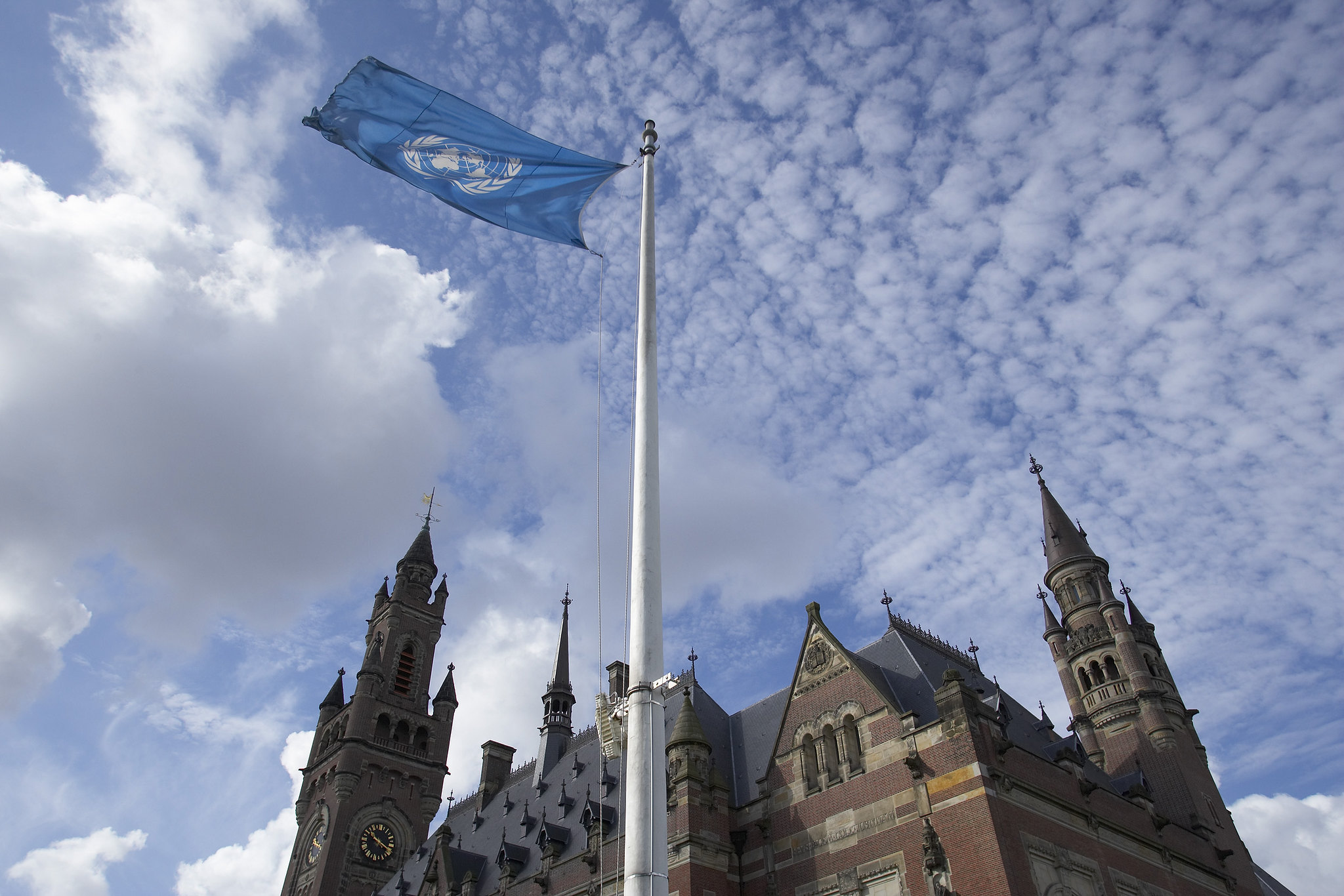
What was your initial reaction to the court hearings on Jan. 11 and 12?
The speeches from the South African legal team were compelling, seeking earnestly to establish the intent of the Israeli government and military to commit genocide while substantiating their arguments with compelling evidence. They emphasized that Israel’s conduct in Gaza is part and parcel of systemic violence, not a series of disconnected or isolated incidents, providing a comprehensive perspective on the enormity of the unfolding atrocity.
My impression of the Israeli defense was that they appeared unable to deny or refute the accusations, providing only minimal and unconvincing attempts at justification. They appeared unprepared to confront the magnitude of the accusations, and struggled to mount a robust defense, often avoiding the critical evidence provided by the South African legal team — perhaps unaccustomed to being under such scrutiny, and also pressed for time.
What I found most striking was Israel’s distortive use of international humanitarian law (IHL). Defensive arguments were crafted in IHL language, without addressing the specific issues — mass evacuation orders presented as “warnings,” the knowledge of starvation and outbreak of infectious diseases — and often citing “human shields” as a justification for any military operation, whatever the target. They argued that civilian deaths in Gaza could only be attributed to Hamas, ultimately turning the population into a legitimate target.
South Africa and the countries supporting its initiative have shown courage, both ethical and political, in challenging Israel and the many Western countries that robustly stand with it, despite the apocalyptic catastrophe created in Gaza. This is why solidarity must strengthen among the countries that supported South Africa, because unity can mitigate the impact of a potential backlash — and there may indeed be political and economic repercussions.
I highly hope that the Court recognizes the necessity of bringing hostilities to an end. While the Palestinians are not part of the proceedings, I hope that all warring parties will observe the decision of the Court. While my work as a UN independent expert, along with that of other Special Rapporteurs, has been heavily utilized by South African attorneys, I wish their call for justice could be heeded by Western countries as well.
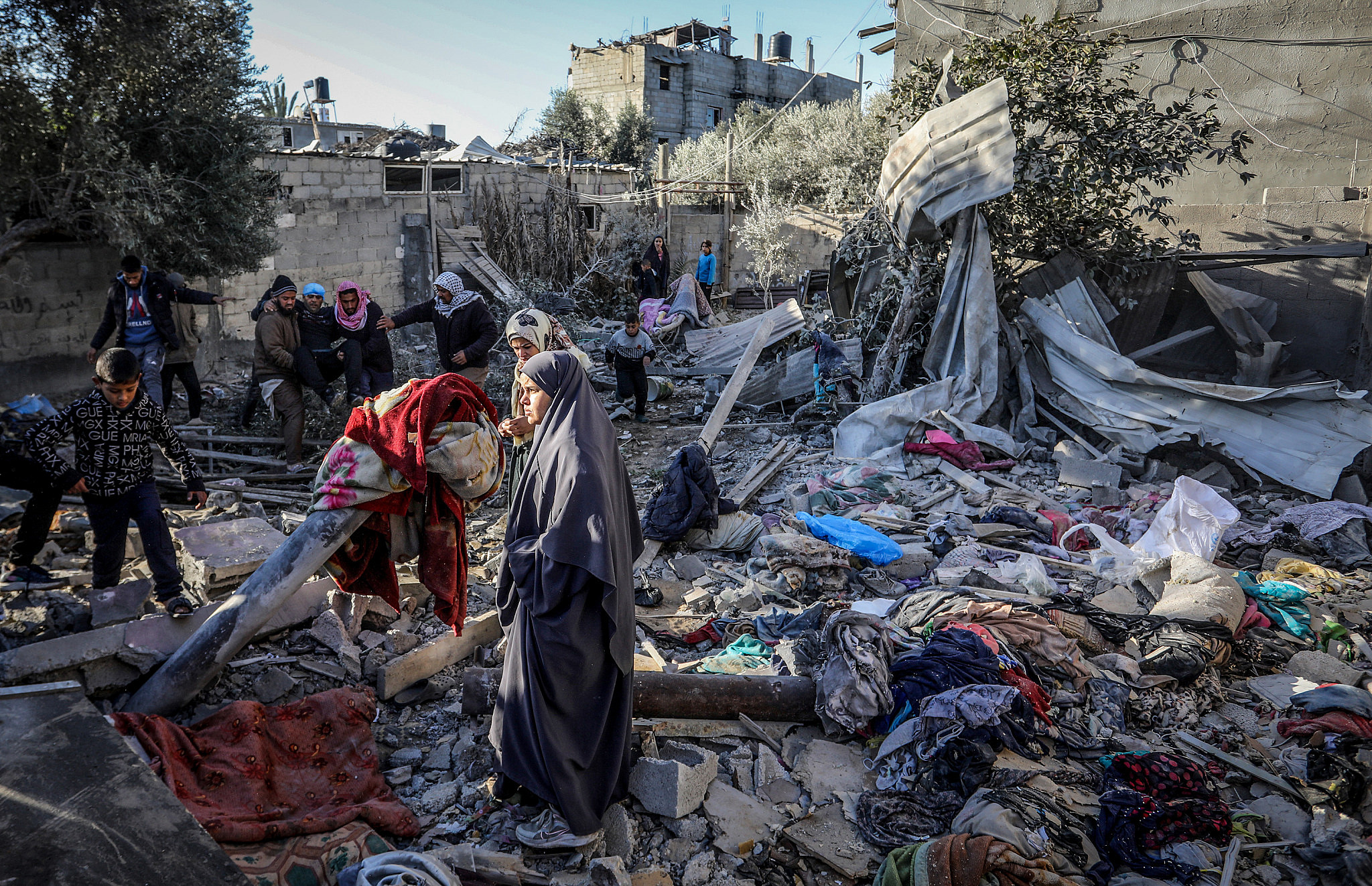
As a European, I particularly hope that Europe takes a stand and proves its commitment to international law and human rights, otherwise the role of international law will be more critically and irredeemably undermined. The law may appear ineffective without political implementation, and politics devoid of legal constraints can quickly descend into criminal behavior.
How do you explain the silence of European countries on the topic of genocide — a topic they know very well from their history?
In a recent debate in which we both participated, Dr. Omar Barghouti [a cofounder of the Boycott, Divestment, and Sanctions movement] asserted that the enduring impact of 500 years of colonialism is discernible in the makeup of Europeans. The European mindset has been indelibly shaped by the ramifications of colonialism and the associated historical legacy. This imprint may materialize as a subtle form of internalized racism. Consequently, Europeans, akin to their counterparts in other Western nations, may display a discernible bias in their empathy.
Following the events of October 7, there was a collective sense of shock and horror at the tragic loss of civilian life in Israel, the brutal violence inflicted upon Israelis, and the taking of hostages. I have condemned these as war crimes and argued that these acts had to be investigated, prosecuted, and the perpetrators brought to justice. Understandably, there was a rightful and compassionate response toward the Israeli people.
Conversely, there appears to be a desensitization to Palestinian losses — even now that almost 24,000 Palestinians, mostly children, are interred in mass graves or left decomposing in the streets, while around 7,000 are unaccounted for and likely perished beneath the rubble. The impact this will have on the Palestinians for generations to come, on those children we see shaking in terror on hospitals beds and floors, injured or maimed, and often orphans, without any relatives caring for them, is unconscionable. While unequivocally condemning violence against civilians, a stance clearly delineated in international law, there is an unsettling normalization of the suffering of the Palestinian population.
Moreover, the tragic history that has befallen the Jewish people throughout centuries makes it challenging to conceive that a state founded and inhabited by survivors of genocide might presently be implicated in such violence and criminal conduct. However, it is crucial to recognize that this sentiment is emotional rather than logical. Understanding the nature and patterns in the committing of crimes enables us to anticipate their occurrence and work toward their prevention. I truly believe in it for the safety and long term wellbeing of both Israelis and Palestinians.
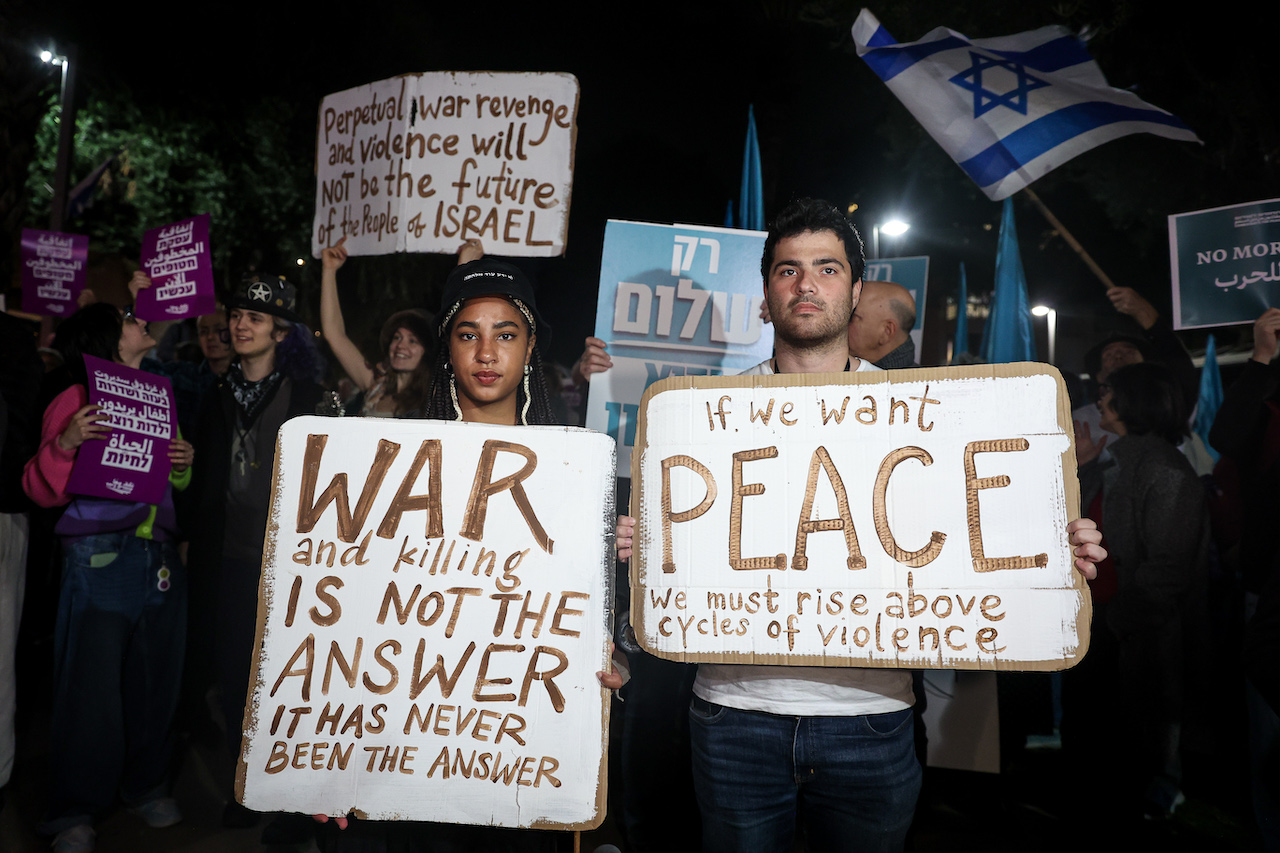
Undoubtedly, the unfolding situation has direct implications for international law, and it holds profound significance in challenging the representation of certain actors — in this case the Palestinians, like other people in the Global South — who were traditionally considered marginal and subaltern. It necessitates a nuanced examination of the complex interplay between historical legacies, empathy biases, and the imperative to address gross human rights violations on a global scale. Again, in the interest of both and with the sanctity of life of both Israelis and Palestinians at heart.
Is South Africa paving the way in defining a new chapter for the Global South to win agency in the international arena after centuries of colonialism and apartheid?
South Africa’s action against Israel seems to have opened a new era in the relations between the Global North and the Global South, and the symbolic impact is profound. Witnessing distinguished South African and Irish legal experts defending a population that is still enduring settler colonialism and apartheid, as South Africa once did, was deeply moving.
The discourse expanded beyond the Palestinian experience of genocide, shedding light on historically denied genocides, such as the Herero and Namaqua genocide that Germany committed in Namibia only a few decades before the Holocaust in Europe. The exposure is prompting an unprecedented and broader conversation among the general public.
Most read on +972
The bold stance taken by South Africa, now followed by a number of countries, is remarkably powerful. It sends a clear message to the West, declaring: “We’re not afraid anymore.” It is crucial to recognize the necessity of reintroducing respect for international law into the narrative and acknowledging that depicting the world as polarized between “virtuous” and “evil” — or worse, “civilized” and “uncivilized” — is no longer convincing. The geopolitical landscape of the future is far more intricate, with the Global South reclaiming its seat at the table.
What we are witnessing extends beyond the specific issue of an unfolding genocide in Gaza; it symbolizes opposition to colonialism, bringing forward the need to confront history. It is not a coincidence that we are beginning to talk about the Herero genocide these days. The case initiated by South Africa has the power to embody the elevation of oppressed voices, and gives a gleam of hope for those whose lives are suspended between survival and the abyss.

